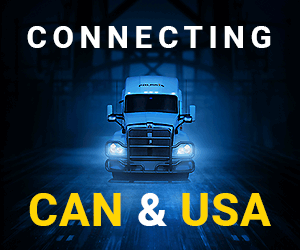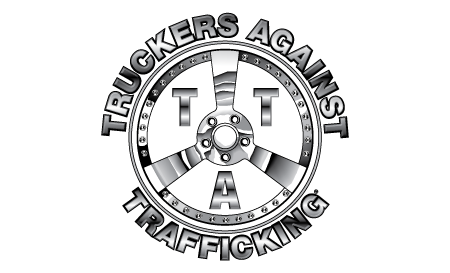Lobster Heist: Recent Court Ruling on Broker Cargo Liability – What You Need to Know
By: Nathaniel Saylor
Foreword by TIA President & CEO Robert Voltmann: TIA has been tracking the Seneca Logistics case and judge’s decision that found that Seneca Logistics was essentially acting as a motor carrier and therefore liable under the Carmack Amendment for a stolen load of lobsters. In order to continue to provide our Members will the details that matter to the 3PL industry, TIA engaged with Nathaniel Saylor, Partner at the Scopelitis, Garvin, Light, Hanson & Feary Law Firm to develop a comprehensive legal analysis of the case and the key takeaways and implications for 3PLs based on the judge’s decision.
————–
We have analyzed the court’s reasoning in the recent decision in the case of Richwell Group, Inc. v. Seneca Logistics Group, LLC (Seneca), which found property broker Seneca Logistics liable as a “carrier” under the Carmack Amendment (Carmack) for the loss of a shipment of lobsters.
Many media outlets have reported on the case – not just because the broker was found liable for damages of roughly $300,000 – but also because of the court’s holding that the broker was liable as a motor carrier under Carmack. The case involved two rulings from the U.S. District Court for the District of Massachusetts. The more troubling ruling finding – that Seneca Logistics was liable under Carmack – was handed down in August; the second ruling – issued on November 19 – was specific to damages.
In some regard, the case is not much of an outlier. Rather, there is a long line of established case law holding that whether an entity operated as a broker or a carrier with respect to cargo loss and damage depends on how the entity “held itself out” in the specific transaction. This has always been a problematic test that leads to a lack of certainty as to whether a broker will be found liable for cargo claims. By focusing on how the entity held itself out to the customer, the test essentially ignores some of the most important facts that the court should be considering, including what authority the entity holds, and whether the entity tendered the cargo in question to a third-party motor carrier.
Unfortunately, the court in Seneca took this flawed reasoning to the extreme, finding Seneca liable under Carmack – even though the court acknowledged that: Seneca Logistics and the claimant, Richwell Group, Inc. (d/b/a Maxfield Seafood), had entered into an agreement for “brokerage of freight”; Seneca Logistics did not hold motor carrier authority; and Seneca Logistics had arranged for a third party to perform the actual transportation.
THE FACTS
The origins of Seneca involved a load of lobsters tendered by Maxfield Seafood that were then stolen by the carrier that had been contracted. Seneca Logistics apparently posted the load looking for a carrier, as the court’s ruling indicates that a company referring to itself as “Rapid Logistics” contacted Seneca Logistics requesting the load.
Seneca Logistics apparently sent its carrier packet to a Gmail account associated with Rapid Logistics and, within six minutes of receiving the completed packet, Seneca Logistics sent “dispatch” instructions to Rapid Logistics. When the driver arrived to retrieve the load, the consignor (which was a third-party warehouse, not Maxfield Seafood) contacted Seneca Logistics to confirm the driver’s identity, and they confirmed that the driver at the location was the correct individual.
As the court noted in its ruling, the “[IRS Form] W-9, U.S. DOT Certificate, Certificate of Liability Insurance, and other documents” provided by Rapid Logistics were fake. The court did not, however, make a determination as to whether Rapid is an actual carrier whose information was stolen or just a fictional company.
COURT’S ANALYSIS OF SENECA’S ROLE
In its ruling, the court cited the federal statutory definition of “motor carrier” as one that “provides motor vehicle transportation for compensation.” The court went on to quote the (admittedly problematic and overbroad) definition of “transportation,” which includes (among other things) “services related to that movement, including arranging for, receipt, delivery… refrigeration, icing… handling, packing… and interchange of passengers and property.”
Importantly, however, the court did not quote the definition of “broker,” which is found in the same statute, and defines broker as “a person, other than a motor carrier… that… holds itself out, by solicitation, advertisement, or otherwise as selling, providing or arranging for, transportation by motor carrier for compensation.”
Again, the court acknowledged that Seneca Logistics and Maxfield Seafood entered into a brokerage agreement. Nevertheless, the court noted that Seneca Logistics “arranged the route and order of pickups and committed to the delivery minutes after the request was made, demonstrating that no separate entity was involved in the planning process.” The court further noted that Seneca Logistics told Maxfield Seafood “’We’ could do their pickups in one day.” Seneca Logistics also made requests related to how the truck would be loaded.
The court noted that “Maxfield had no knowledge of who would be transporting the load of lobsters, and Seneca’s representatives were the sole point of contact for the individuals who claimed to work for Rapid. Finally, [the consignor warehouse] contacted Seneca, rather than Maxfield, to confirm the release of the load . . . [Seneca] then held Seneca out as the carrier to [the consignor warehouse] by acknowledging the driver and releasing the load.”
None of this, however, is out of the ordinary for brokerage operations. Moreover, the court failed to explain why the fact that the warehouse decided to contact Seneca Logistics – and not the shipper – was indicative of Seneca Logistics holding itself out to the shipper as a carrier.
On these facts, the court reached the spurious conclusion that “no jury could reasonably find Seneca did not act as a carrier during this specific transaction.” The court’s later decision on damages is not of interest. The question of Seneca Logistics’ role had already been addressed, and the only question was the proper calculation of damages under Carmack.
TAKE-AWAYS
It is true that Seneca Logistics could have done more to avoid the claim by more fully vetting the carrier in question, and in this regard, it is important to remind brokers of the significance of having stringent policies and procedures in place to vet carriers and minimize the likelihood of fraud. TIA’s Carrier Selection Framework is a good place to start.
Unfortunately, the court’s analysis leaves little in the way of practical guidance for brokers. It just is not pragmatic to suggest that a broker should require its customer to work directly with the carrier to arrange transportation. Providing shippers with a single point-of-contact to arrange transportation is exactly the type of value-added service that shippers expect and demand. Furthermore, it is exactly the type of service that a broker, by definition, is allowed to provide pursuant to the statutory definition of “broker.”
Fortunately, the court’s failure to acknowledge the definition of “broker” (and the determination that no jury could possibly determine that Seneca acted as a broker) is the type of reasoning that opens the judgment up to the risk of appeal. Thus, it is possible the decision could be reversed on appeal. Still, no broker wants to have to undergo the cost of litigation and, in Seneca Logistics’ position, the cost of an appeal to a federal appellate court, merely to confirm that a broker is, in fact, a broker.
Again, the decision in Seneca is so one-sided, one gets the impression that no matter what Seneca Logistics would have done, the court would have reached the same conclusion. That being said, the case nevertheless is a good reminder of the sorts of things brokers should be doing in order to confirm their role as brokers and not carriers.
These include:
- Make sure any contracts the company enters acknowledge its role as a property broker;
- If operating without a signed customer agreement, adopt terms and conditions acknowledging the company’s role as a broker and get customer assent to those terms (whether electronically, via scroll wraps, signed credit applications referencing the T&Cs, referring to the T&Cs in load confirmation documents, etc.);
- Refer to the company as “Broker” in load confirmations and other documentation;
- Review the company’s website to ensure it clarifies the company’s role in “arranging” transportation via “third party” carriers (and do not refer to carriers as “partners’); and
- Adopt policies and procedures for carrier selection utilizing the TIA Carrier Selection Framework and Fraud Framework as a guide.
Again, given the reasoning in Seneca, the foregoing might not have been enough to convince the court of Seneca Logistics’ role, but in the eyes of another court, the foregoing might be enough to protect the broker’s status.
One final point regarding the court’s ruling is that brokers have had so much success arguing that state law causes of action against brokers are preempted by the Federal Aviation Administration Authorization Act (FAAAA) at 49 U.S.C. 14501, that claimants might feel they have no choice but to argue that a broker is a “carrier” under Carmack. The justification here is that since Carmack is a federal statute, a claim under Carmack is not preempted by the FAAAA. In other words, we might start seeing more of these claims as shippers realize their state law claims against brokers are subject to preemption.
* Nathaniel Saylor is a partner at Scopelitis, Garvin, Light, Hanson & Feary Law Firm. To contact Nathaniel call (435) 315-3947 or email [email protected].
** Seneca Logistics Is Not a TIA Member.
###
The Transportation Intermediaries Association (TIA) is the professional organization of the $214 billion third-party logistics industry. TIA is the only organization exclusively representing transportation intermediaries of all disciplines, doing business in domestic and international commerce. TIA is the voice of the 3PL industry to shippers, carriers, government officials and international organizations. TIA is the United States member of the International Federation of Freight Forwarder Associations, FIATA.
- 13.03.2024- TIA 3PL Market Report Q4 2023: Navigating Through Challenges with a Glimpse of Recovery
- 18.01.2024- TIA Launches New Industry Fraud Report
- 02.01.2024- Women In Trucking Call for Nominations: 2024 Distinguished Woman in Logistics Award
- 03.01.2024- TIA Congratulates 2023 Trimester 3 Graduates
- 09.01.2024- TIA Enhances Education Programming with SYNC Training
- 10.01.2024- TIA Express Disappointment in DOL Independent Contractor Ruling
- 29.01.2024- TIA Releases White Paper on Safeguarding Shipments Against Fraud
- 26.02.2024- TIA Announces Dora McCann as Director of Government Affairs
- 27.02.2024- TIA and Avalon Announce Trimester 1 2024 Scholarship Recipients
- 08.03.2024- Member Spotlight: Meet Martha Brown of Advantage Brokerage Corporation in Loveland, Colo.
- 10.03.2024- Member Spotlight: Meet Harinder Kaur of Vineyard Brokerage in Indianapolis.
- 16.03.2024- Member Spotlight: Meet Charlie Saffro of CS Recruiting
- 01.04.2024- Member Spotlight: Meet Pilar Dorfman of Phoenix International Freight Services, Inc.
- 02.04.2024- Member Spotlight: Meet Chelsea Alwidyan with Midway Logistics in Wichita, Kan.
- 02.04.2024- Member Spotlight: Meet Liz Wayne with Able Transport Solutions in Omaha
- 02.04.2024- MEMBER SPOTLIGHT: Meet Salvador Cano from PENTONIX Freight
- 08.04.2024- MEMBER SPOTLIGHT: MEET KRISTY KNICHEL FROM KNICHEL LOGISTICS
- 08.04.2024- MEMBER SPOTLIGHT: MEET VINCENT CARRANO FROM FENICHEY LLC
- 11.04.2024- TIA’s Inaugural Media Day Shines Spotlight on Logistics Industry Innovations
- 11.04.2024- MEMBER SPOTLIGHT: MEET JIM VACA FROM SOURCE ALLIANCE NETWORK, LLC
- 13.04.2024- TIA Welcomes New Board Members during Annual Conference
- 13.04.2024- Sue Spero Awarded TIA’s Tom Fiorini Heritage Award
- 16.04.2024- COMPANY MEMBER SPOTLIGHT: SONAR BY FREIGHTWAVES, CHATTANOOGA, TN
- 23.04.2024- TIA Releases Updated Version of Its Framework to Combat Fraud
- 24.04.2024- TIA Calls out Department of Labor’s Overtime Regulations for Hurting Small Businesses
- 25.04.2024- COMPANY MEMBER SPOTLIGHT: REVENOVA, BANNOCKBURN, Ill.
- 26.04.2024- TIA Launches White Paper on 5 Ways Logistics Leaders Can Harness AI Successfully
- 09.05.2024- TIA Recognizes the Trimester 1 2024 CTB Graduates
- 09.05.2024- Avalon Names Scholarship Winners for TIA’s CTB Program for Trimester 2
- 22.05.2024- TIA Commends D.C. Delegate Holmes Norton and Rep. Ezell’s Household Goods Shipping Consumer Protection Act
- 04.06.2024- MEMBER SPOTLIGHT: MEET SCOTT FREDERICK FROM LOGISTICS PLUS, INC.
- 06.06.2024- Logistics Industry Continues to See Declines as the Supply Chain Market Corrects Itself from Pandemic Highs
- 14.06.2024- TIA Launches Vendor Advisory Committee to Help Identify, Evaluate and Assess Emerging Technology in the Industry
- 19.06.2024- TIA Names Bill Tucker Certified Transportation Broker Scholarship Winner for Trimester 2
- 24.06.2024- Member Spotlight: Meet JoAnne Bricker with Jersey Girl Logistics, LLC
- 16.07.2024- MEMBER SPOTLIGHT: Meet Andy Bahr from Bahr Transportation
- 23.07.2024- MEMBER SPOTLIGHT: Meet Cameron Gottfried of PerformanceCentre, Inc.
- 25.07.2024- TIAIRE’s Course Catalog Now Accepting GI Bill Funds
2024
- 13.01.2023- CABVI AND TIA JOIN FORCES TO OFFER FREIGHT BROKER PROFESSIONAL PROGRAM
- 08.03.2023- Freight Market Declines Test Brokers During the Fourth Quarter
- 15.03.2023- TIA Achieves SCHEV Certification
- 28.03.2023- FMCSA Denies TIA Petition, Grants Rulemaking on Rate Intrusion
- 26.04.2023- Key Takeaways from the TIA 2023 Capital Ideas Conference
- 09.05.2023- TIA Grants CTB Designation to 42 Logistics Professionals
- 10.05.2023- Transportation Intermediaries Association Testifies Before Congress on Overcoming Supply Chain Challenges
- 24.05.2023- Freight Volume Declines Let Up During the First Quarter
- 07.06.2023- Dr. Jennifer Golbeck to Deliver Keynote Address at TIA Technovations 2023
- 09.06.2023- TIA Launches Task Force to Combat Escalating Fraud in the Industry
- 14.06.2023- TIA Releases Free Educational Fraud Course for Members
- 06.07.2023- TIA Announces Scott Jennings as Keynote Speaker, Bringing Unparalleled Political Expertise to Industry Policy Discussions
- 28.07.2023- Dr. Jim Kenny Announced as the Leadership Instructor for TIA’s Executive Development Leadership Program
- 01.08.2023- Celebrating Tech Innovators in Logistics: Inaugural TIA “Technovator of the Year” Award Open for Nominations
- 03.08.2023- TIA Unveils Watchdog Program Enhancements through Collaboration with Highway
- 07.08.2023- TIA Unveils Updated Carrier Selection Framework to Combat Industry Fraud
- 22.08.2023- Automotive Production a Bright Spot for Freight Market in Q2
- 24.08.2023- Applications Open for TIA’s 2023 Policy Forum Scholarship Program
- 06.09.2023- TIA Recognizes 43 Logistics Professionals with CTB Designation
- 08.09.2023- TIA Announces Trimester 3 CTB Scholarship Winners
- 12.09.2023- TIA Releases Sustainability Whitepaper for Logistics Professionals
- 18.09.2023- Anne Reinke, TIA President & CEO, Named Recipient of 2023 Women in Supply Chain Award
- 21.09.2023- TIA Elevates Industry Education with Three New Courses
- 21.09.2023- TIA Announces Recipients of its 2023 Policy Forum Scholarships
- 28.09.2023- TIA Education Team Honored with Prestigious Award
- 11.10.2023- TIA Release Updated Broker-Carrier Model Contract
- 08.11.2023- TIA Introduces Inaugural Media Day to Highlight Breaking News at 2024 Capital Ideas Conference
- 16.11.2023- TIA Applauds FMCSA for Final Rule on Broker Financial Responsibility
- 20.11.2023- TIA’s CTB Courses Recommended by ACE for Supply Chain Management Degree
- 21.12.2023- TIA Applauds Introduction of C-TPAT Pilot Program Act
2023
- 02.03.2022- TIA Gives Full Support to C-TPAT Pilot Program Act
- 21.01.2022- Biden Administration Enforces Cross-Border Vaccine Mandate
- 10.01.2022- TIA Staff Reaches 100% Completion Rate on Human Trafficking Certification Program
- 10.03.2022- TIA’s Chris Burroughs Named UCR Board Subcommittee Chairman
- 07.04.2022- Women In Trucking Association Names Nicole Glenn the 2022 Distinguished Woman in Logistics
- 27.05.2022- C-TPAT Pilot Program Act Passes in the Senate
- 02.09.2022- TIA Announces Launch of New Brand Reflecting Changes in Supply Chain, Logistics Industry and Membership
- 06.11.2022- Registration Now Open for TIA’s Premier Annual Conference: 2023 Capital Ideas Conference
- 08.11.2022- TIA and UTC Center for Professional Education Join Forces to Offer Local Freight Broker Professional Program
- 16.11.2022- FMCSA Releases Anticipated Guidance on Dispatch Services
- 06.12.2022- TIA Institute for Research & Education Launches New Hybrid Executive Leadership Development Program
2022
- 26.08.2021- TIA Awards 29 Logistics Professionals Coveted Certified Transportation Broker Designation
- 26.08.2021- Transportation Intermediaries Association Announces Latest Integration with TIA Watchdog Carrier Vetting Platform
- 20.08.2021- Health & Safety Protocols at TIA Meetings & Events
- 10.08.2021- TIA Statement on Passage of Bipartisan Infrastructure Package
- 22.07.2021- TIA Releases Updated Co-Broker Model Contract
- 16.07.2021- TIA Applauds New C-TPAT Legislation
- 01.06.2021- TIA Celebrates Its Members All Month Long
- 25.05.2021- Pandemic Demands Cause Major Shift in Supply Chain Provider Relationships
- 12.05.2021- TIA Letter of Support MCSSS
- 12.05.2021- TIA Announces $10,000 Donation to Truckers Against Trafficking
- 11.05.2021- TIA Signs DOT Anti-Human Trafficking Pledge
- 11.05.2021- TIA Announces Installation of New Association Leaders at Annual Conference
- 10.05.2021- Congressman Peter DeFazio to Deliver Day One Keynote Address at the TIA 2021 Capital Ideas Conference
- 05.05.2021- TIA Releases Updated Carrier Selection Framework
- 12.02.2021- TIA Welcomes New Additions to Director’s Circle
- 10.02.2021- ADMIRAL WILLIAM H. MCRAVEN, USN (RET.) TO DELIVER CLOSING KEYNOTE ADDRESS AT THE TIA 2021 CAPITAL IDEAS CONFERENCE
- 21.10.2021- TIA Partners with Truckers Against Trafficking to Offer Members Access to Human Trafficking Certification Program
2021
- 23.11.2020- TIA Releases 3rd Quarter Performance Measures for 3PL Industry
- 29.10.2020- FMCSA Rate Transparency Listening Session
- 28.10.2020- TIA Comments on Department of Labor Worker Classification Proposal
- 30.09.2020- TIA Announces Initial Round of Q3 2020 CTB Graduates
- 24.08.2020- TIA CELEBRATES MEMBER MILESTONES
- 13.08.2020- TIA Releases 2nd Quarter Performance Measures for 3PL Industry
- 27.07.2020- TIA Awards 31 Logistics Professionals Coveted Professional Designation
- 20.07.2020- TIA Announces National Apprenticeship Program Supported by FASTPORT
- 07.07.2020- TIA ANNOUNCES LAUNCH OF NEW LOGISTICS ACADEMY
- 02.07.2020- TIA ISSUES STATEMENT ON THE INTRODUCTION OF MOTOR CARRIER SAFETY SELECTION STANDARD ACT
- 22.06.2020- Important Update: TIA Capital Ideas Conference
- 12.06.2020- TIA Welcomes New Interim CEO
- 10.06.2020- TIA Says Farewell to CEO & Industry Leader
- 02.06.2020- TIA Celebrates Its Members All Month Long
- 18.05.2020- TIA Releases 1st Quarter Performance Measures for 3PL Industry
- 15.05.2020- TIA Releases Resource for Reopening Procedures
- 08.05.2020- TIA ISSUES STATEMENT IN RESPONSE TO PRESIDENT TRUMP’S STATEMENT ON PRICE-GOUGING BY BROKERS
- 30.04.2020- TIA Releases New Shipper Resource
- 16.04.2020- TIA Letter for Additional PPP Funding
- 15.04.2020- TIA Awards 34 Logistics Professionals Coveted Professional Designation
- 07.04.2020- TIA Releases Updated Framework to Combat Fraud
- 01.04.2020- TIA Issues Statement on SBA 7(A) Forgivable Loans Under the Paycheck Protection Program
- 27.03.2020- TIA Issues Statement on Final Passage of The “CARES Act”
- 26.03.2020- TIA Releases Contracts Considerations Resource for Shippers and 3PLs
- 23.03.2020- TIA STATEMENT ON FAILED CLOTURED VOTE OF THE “CARES” ACT
- 18.03.2020- TIA ISSUES FAMILIES FIRST CORONAVIRUS RESPONSE ACT FACT SHEET
- 16.03.2020- DOT Declares National Emergency for CMV Delivering Relief in Response to Coronavirus Outbreak
- 12.03.2020- COVID-19 Update from TIA President & CEO
- 31.01.2020- TIA AWARDS 39 LOGISTICS PROFESSIONALS COVETED DESIGNATION
- 09.01.2020- CALIFORNIA JUDGE RULES AB5 VIOLATES F4A
- 16.10.2020- TIA Announces Appointment of New President & CEO
2020
- 05.12.2019- ADMIRAL WILLIAM H. MCRAVEN, USN (RET.) TO KEYNOTE TIA 2020 CAPITAL IDEAS CONFERENCE & EXHIBITION
- 03.12.2019- TIA 2020 Capital Ideas Conference & Exhibition Named “Top 50 Logistics Conferences to Attend in 2020”
- 27.11.2019- Lobster Heist: Recent Court Ruling on Broker Cargo Liability – What You Need to Know
- 20.11.2019- Transportation Intermediaries Association Urges Senate to Fix Stretch IRA Provisions in SECURE Act
- 23.01.2019- Transportation Intermediaries Association (TIA) Enhances HQ Staff to Advance Member Growth
- 28.10.2019- Registration Open for TIA’s 2020 Capital Ideas Conference & Exhibition
- 12.11.2019- Sold Out 3PL Technovations Conference Opens Today
- 26.11.2019- 3rd Quarter Performance Measures for 3PL Industry
2019
- 06.06.2018- TIA Presents 3PL Congressional Leadership Awards
- 07.05.2018- TIA President and CEO Robert Voltmann Joins U.S. Chamber of Commerce’s Association Committee of 100
- 10.04.2018- 3PL Industry Releases 2018 Freight Visibility Report
- 10.04.2018- TIA Honors Logistics Industry Leaders
- 30.03.2018- Fourth Quarter Performance Measures Improve For 3PLs Under $16 Million
- 28.02.2018- TIA 2018 Conference Scholarship Recipients Announced
2018
- 28.11.2016- Varied Results in 3PL Activity in Third Quarter 2016
- 10.11.2016- MacroPoint Selected for TIA Directors Circle
- 26.09.2016- Transportation Intermediaries Association mirrors 3PL industry’s large growth with promotions
- 19.09.2016- Jeff Mason Appointed Chief of Staff for Transportation Intermediaries Association
- 24.08.2016- Leslie Kranz Appointed Director of Marketing and Communications for Transportation Intermediaries Association
- 22.08.2016- Across-the-board Growth in 3PL Truckload Activity in Second Quarter 2016
- 08.08.2016- Arranging Freight in Canada Simplified by TIA and CIFFA
- 21.06.2016- First Quarter 2016 3PL Benchmarking Report Shows a Margin Increase to Balance a Loss in Volume
- 23.03.2016- TIA Certified Transportation Brokers Program Surpasses 2100 Certifications with 54 Professionals Receiving Designation
- 29.02.2016- Fourth Quarter 3PL Benchmarking Report Shows Volume Growth for 3PLs with a Revenue Decrease In Annual Comparison
- 24.02.2016- TIA at the Pentagon Signs to Support the Employers of the Guard and Reserve













